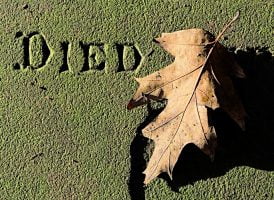Ralph Jungheim, a record producer, impresario, photographer, and all-around friend to jazz, passed away on Jan. 5 in Los Angeles, Calif., due to complications of a longtime illness. He was 89.
As an independent producer, Jungheim oversaw 58 albums for such artists as Earl Hines, Freddie Hubbard, Ruth Brown, Joe Pass, Michel Legrand, Jimmy Rowles, Freddy Cole, Jimmy Witherspoon, Howard Rumsey’s Lighthouse All Stars, Jack Sheldon, Wild Bill Davison and Eddie Miller, Jackie Allen, Dr. Bobby Rodriguez, Bill Berry’s Ellington All-Stars, Charles Neville, Tommy Newsom, Mavis Rivers, James Zollar, and John Dentz.
Jungheim’s approach to production was to creatively agitate his artists, frequently suggesting unfamiliar material or pairing them with players who were new to them. Piano legend Earl Hines preferred playing tunes that he’d already recorded many times; Jungheim researched his discography and came up with a program of songs that Hines had never previously cut for Fatha Hines Plays Hits He Missed (1978). Trumpeter Jack Sheldon’s onstage clowning was becoming better known than his playing, so Jungheim only recorded instrumentals with him on Playin’ It Straight (1981). Pianist Jimmy Rowles was captured in combinations of trio, quartet, and quintet—all on the same album (Jimmy Rowles Plus 2, Plus 3, Plus 4, 1989). And Jungheim put Michel Legrand in the stimulating company of Cuban trumpeter Arturo Sandoval and West Coast jazzmen Buddy Collette and Bud Shank for Michel Plays Legrand (1993).
The albums that resulted from this approach drew industry accolades. Two releases that Jungheim produced, Joe Williams’ Nothin’ But the Blues (1984) and Ruth Brown’s Blues on Broadway (1989), earned Grammys, with four more—Etta James’ The Late Show (1987), Eddie “Cleanhead” Vinson’s Blues in the Night (1987), Roy Clark and Joe Pass Play Hank Williams (1994), and Don Menza’s Burnin’ (2002)—receiving Grammy nominations.
Born on May 19, 1929, Jungheim became a serious photographer as a teenager in his hometown of Chicago. Jazz musicians were his subject, and the city spread a banquet before him. He shot traditional players like Pee Wee Russell, Bud Freeman and Wild Bill Davison; bluesmen Big Bill Broonzy and Little Brother Montgomery; modernists like Dizzy Gillespie, Lennie Tristano, and George Shearing; and Count Basie and Louis Jordan at the Regal Theatre. Jungheim sold his images to DownBeat (including the first nationally published photos of singer/pianist Jeri Southern) before he was out of his teens. His photo archive is now part of CTS Images, a popular source for historic jazz images.
Armed with a Catholic high-school education, Jungheim went into advertising—first writing ad copy and then overseeing projects as a creative director. He moved to Los Angeles in 1954 to work for the Carson Roberts Agency. On radio campaigns, he used jazz broadcasters like Chuck Niles for his voiceovers; when there was music involved, he contracted the city’s top jazz players. Jungheim also produced a television pilot, Today’s Jazz (1973).
Record production was a natural step for Jungheim, but he didn’t take it lightly. To sharpen his music fundamentals, he took trumpet lessons. Working hand in hand with audio engineer John Eargle and tenor saxophonist Red Holloway (who frequently led Jungheim’s session bands and pointed him to good players around town), he quickly developed good instincts and learned how to navigate around difficult personalities. To choose just one example: At his first session producing Freddie Hubbard on 1983’s Back to Birdland, the trumpeter showed up without a horn. With nary a word to Hubbard, Jungheim subsequently sent a limousine that reliably transported the trumpeter—with instrument—to his remaining sessions for the album.
In his later years as producer, Jungheim recorded Andy Williams, Jack Lemmon, Johnny Paycheck, Andrea Marcovici, and Boots Randolph.
A longtime devotee of Duke Ellington’s music, Jungheim produced the great bandleader’s 1973 Sacred Concert at St. Paul the Apostle Church in West Los Angeles. Along with Ray and Nancy Avery, Dr. Bill Hill, and others, he and his wife Celinda resuscitated the L.A. chapter of the Duke Ellington Society in the early 1980s.
Jungheim is survived by his wife; his daughters Jill and Lisa; sons Mark and Erik Blank; grandsons Charlie Jungheim, Troy Kassien, and Alexander Blank; and granddaughters Samantha Jungheim, Olivia Kassien and Katherine Blank. He also leaves three brothers—Lou, Sr., Quentin (with wife Susan), and Nick (with wife Maki)—and a sister, Dolores (with husband Bob).







More Stories
The band was tight as ever. The Warren Haynes Band cuts loose: Video, Photos
Troy Redfern Showcases Invocation – This is a full on no nonsense performance delivered with energy and passion: Video, Photos
Willie Buck – Live at Buddy Guy’s Legends on Delmark: Video, Photos